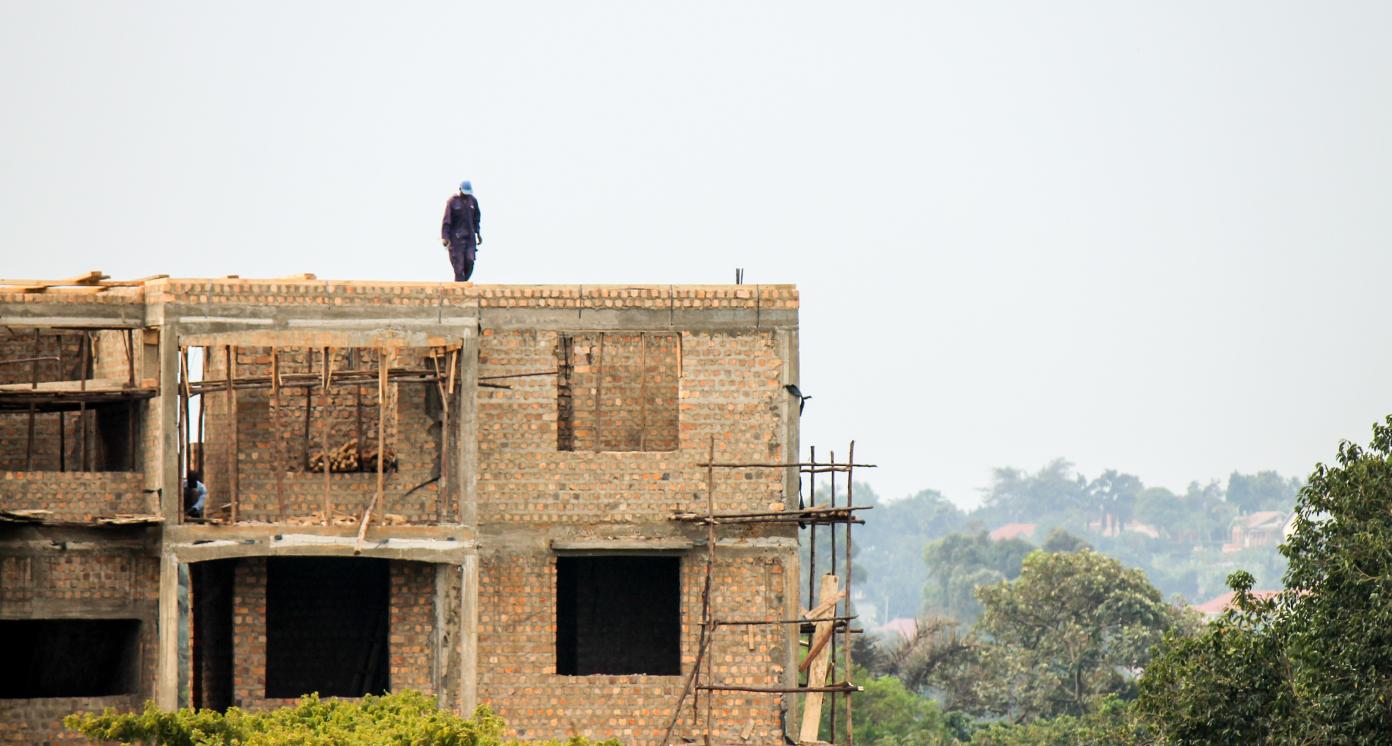Affordable and Eco-Friendly Housing
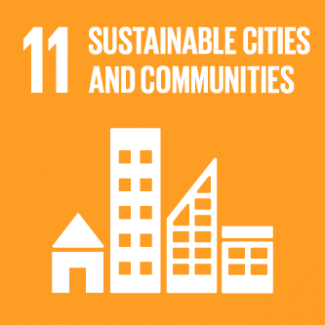
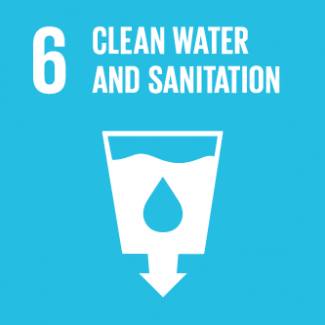
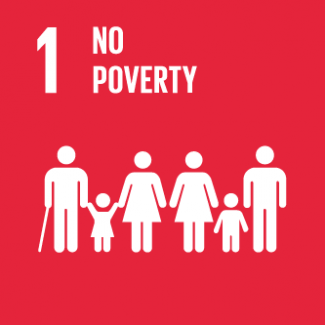
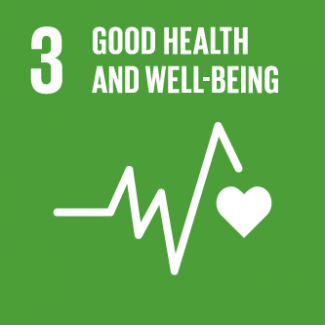
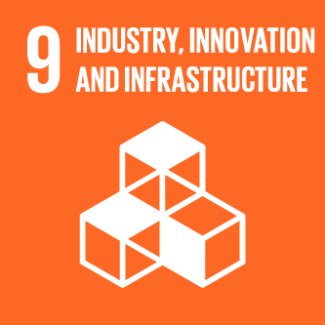
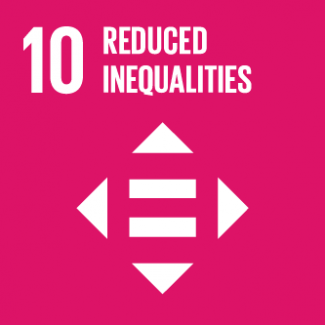
Business Model Description
Construct affordable and eco-friendly housing for low-income households through a lease- or rent-to-own model.
Expected Impact
Improve wellbeing of low-income groups and address health and safety concerns in informal settlements.
How is this information gathered?
Investment opportunities with potential to contribute to sustainable development are based on country-level SDG Investor Maps.
Disclaimer
UNDP, the Private Finance for the SDGs, and their affiliates (collectively “UNDP”) do not seek or solicit investment for programmes, projects, or opportunities described on this site (collectively “Programmes”) or any other Programmes, and nothing on this page should constitute a solicitation for investment. The actors listed on this site are not partners of UNDP, and their inclusion should not be construed as an endorsement or recommendation by UNDP for any relationship or investment.
The descriptions on this page are provided for informational purposes only. Only companies and enterprises that appear under the case study tab have been validated and vetted through UNDP programmes such as the Growth Stage Impact Ventures (GSIV), Business Call to Action (BCtA), or through other UN agencies. Even then, under no circumstances should their appearance on this website be construed as an endorsement for any relationship or investment. UNDP assumes no liability for investment losses directly or indirectly resulting from recommendations made, implied, or inferred by its research. Likewise, UNDP assumes no claim to investment gains directly or indirectly resulting from trading profits, investment management, or advisory fees obtained by following investment recommendations made, implied, or inferred by its research.
Investment involves risk, and all investments should be made with the supervision of a professional investment manager or advisor. The materials on the website are not an offer to sell or a solicitation of an offer to buy any investment, security, or commodity, nor shall any security be offered or sold to any person, in any jurisdiction in which such offer would be unlawful under the securities laws of such jurisdiction.
Country & Regions
- Djibouti: Obock
- Djibouti: Dikhil
- Djibouti: Tadjourah
- Djibouti: Arta
Sector Classification
Infrastructure
Development need
Housing is among the key infrastructural challenges for Djibouti. Decent housing is out of reach for the bulk of the population, particularly considering house purchase and rental prices in the country (1). The lack of housing estates and the rising cost of construction materials explain the difficulties in accessing decent housing from which low-income social groups suffer (5).
Policy priority
The Vision Djibouti 2035 includes large-scale infrastructure investments focused on public projects, such as the construction of a railroad and a water pipeline (1). The Horn of Africa Initiative also prioritizes infrastructure, allocating USD 12.5 billion to develop cross-border regional infrastructure (3).
Gender inequalities and marginalization issues
Gaps in access to good infrastructure affect women disproportionately, with lack of access to water and electricity presenting larger opportunity costs for women. Poor urban transport also impacts rural communities' and women's access to key services and employment opportunities (4).
Investment opportunities introduction
Djibouti's young population provides an opportunity to strengthen and develop infrastructure projects, especially in real estate. Construction of affordable housing has a high potential to improve people’s living standards in Djibouti.
Key bottlenecks introduction
Challenges in the infrastructure sector include limited access to water rendering road construction and compaction work difficult, high costs related to imported construction material, and the lack of proven-in-marked business models in Djibouti.
Real Estate
Development need
More than 50% of Djibouti's population lives in precarious housing conditions with only 26.2% of households living in solid housing with walls made of permanent materials. The estimated housing deficit in the country stands at around 2,500-3,000 homes annually, in addition to a structural housing deficit of around 30,000 homes (5).
Policy priority
The Government of Djibouti developed an accommodation policy adapted to the national socio-cultural environment (2). Financing mechanisms have been elaborated and social housing assistance programmes and policies have been enhanced in Djibouti (2).
Gender inequalities and marginalization issues
The population in the semi-urban or rural areas and a high number of refugees in Djibouti lack access to appropriate housing (7, 11).
Real Estate Services
Pipeline Opportunity
Affordable and Eco-Friendly Housing
Construct affordable and eco-friendly housing for low-income households through a lease- or rent-to-own model.
Business Case
Market Size and Environment
Annual housing shortcoming of 2,500-3,000 units
The estimated housing deficit in Djibouti stands at 2,500-3,000 homes annually (9). More than 50% of the population lives in precarious housing conditions (8).
Indicative Return
15% - 20%
The dominant house investment models in a market in the region, with medium and high density projects, report an IRR of 16-17% (3). Housing developments oriented towards affordability and targeting lower income communities may result in lower returns.
Investment Timeframe
Short Term (0–5 years)
The investment timeframe varies by the size of the housing project. A sample case study from the region reports that the housing developer was paid all the due amount within a 2-year period after the completion of construction (6).
Ticket Size
USD 500,000 - USD 1 million
Market Risks & Scale Obstacles
Capital - CapEx Intensive
Capital - Limited Investor Interest
Impact Case
Sustainable Development Need
Djibouti's economic growth has resulted in significant housing needs. More than 50% of the population live in precarious housing conditions and only 26.2% of households have solid housing with walls made of permanent materials, namely concrete or brick (10).
For a majority of Djiboutians, living conditions are characterized by high congestion with an average of three people per bedroom (8).
Despite Government programmes on constructing housing villages, high costs of water and electricity connectivity prevent access from decent housing and basic services, which can negatively impact people's health and wellbeing (9).
Gender & Marginalisation
In rural regions, where a higher percentage of extreme poverty is reported - 62% in rural regions compared to 21% of the overall population -, the lack of financial resources for appropriate housing is more accentuated (23).
Expected Development Outcome
Affordable housing decreases inequalities in access to housing for low- and middle-income households and address poverty challenges. Well planned projects also reduces the prevalence of informal settlements.
Housing projects targeting low-income communities reduces communicable and non-communicable diseases connected with living in informal settlements, improved quality of life.
Eco-friendly housing decreases the construction sector's negative impact on the environment, and controlled sanitation system of housing projects leads to better sanitation services and wastewater management with reduced strains on the environment.
Gender & Marginalisation
Marginalized communities with lower purchasing power obtain access to safe and affordable housing. Women have greater opportunities to access land ownership.
Primary SDGs addressed

11.1.1 Proportion of urban population living in informal, informal settlements or inadequate housing
64.50% in 2018 (15).
0% (globally) (15).

6.1.1 Proportion of population using safely managed drinking water services
Access to improved water sources of piped water for 97.94% of urban population (15).
0% (globally) (15).

1.4.1 Proportion of population living in households with access to basic services
1.2.1 Proportion of population living below the national poverty line, by sex and age
76% of population use basic drinking water services; 67% use basic sanitation services (2020) (16).
21.1% (16).
0% (globally) (15).
0% (globally) (15).
Secondary SDGs addressed



Directly impacted stakeholders
People
Gender inequality and/or marginalization
Planet
Corporates
Public sector
Indirectly impacted stakeholders
Corporates
Public sector
Outcome Risks
The construction of real estate may affect the value of land and buildings in the neighborhood, which may increase price levels negatively affecting affordability for low-income groups (17).
House construction may cause soil sealing, which contributes to possible land degradation and changes in groundwater (18). Real estate can also interfere with the natural habitat of wildlife.
Credits associated with housing purchases may create long-term financial burdens for households.
Impact Risks
In case that the price or rent for the housing are not as low as expected, the low-income groups' access to the units may be limited and thus the impact may be lower than expected.
Impact Classification
What
Construction of affordable and eco-friendly housing improves the wellbeing of households and frees up resources for other essential needs, such as food and healthcare.
Who
Marginalized communities and low- and middle-income households that cannot access safe and affordable housing and live in informal settlements with poor living conditions.
Risk
While the model of affordable and eco-friendly housing is proven, it must be tailored to the most marginalised groups of society to achieve significant impact.
Impact Thesis
Improve wellbeing of low-income groups and address health and safety concerns in informal settlements.
Enabling Environment
Policy Environment
Djibouti Vision 2035, 2014: Stipulates that the Government aims to work with the private sector to promote affordable housing (1), based on which authorities seek partnerships and new programmes in a bid to address Djibouti’s affordable housing deficit (8).
Strategy for Accelerated Growth and Employment Promotion (SCAPE) 2015-2019, 2014: Seeks to conduct demolitions of precarious housing and give priority to housing needs of households with incomes below DJF 150,000 (USD 850), based on a reformed framework and an active housing policy (19).
National Social Protection Strategy, 2018: Acknowledges the deficit in affordable and decent housing despite the existing government efforts, such as the construction of housing villages. It recommends private sector involvement and Government support for reducing factor costs (7).
Financial Environment
Financial incentives: Low-income housing developers benefit from a fixed reduced registration fee of DJF 100,000 (USD 550) for the acquisition of building land (7).
Fiscal incentives: Low-income housing developers benefit from tax breaks on specific imported construction materials, and breaks on interior consumption tax and value-added tax (9). General tax adjustments are granted on construction materials used for structural works (8).
Other incentives: The Integrated Slum Resorption Project of the Ministry of Housing supports the capacity of public institutions to implement the national slum-upgrading program (20), which may also benefit private developers.
Regulatory Environment
Housing Framework and Policy, forthcoming: The Strategy for Accelerated Growth and Employment Promotion (SCAPE) 2015-2019 defines the objective of developing such a framework and policy, which is yet to be released.
Law No. 104, 2016: Approves the development and town planning plan for the agglomeration of Djibouti City (21).
Law No.163, 2020: Specifies insulation standards for energy efficient public and private buildings (24).
Marketplace Participants
Private Sector
Shelter Afrique, Firm Factory Africa, Mineco Group, Kwangu, Koto Housing Kenya, Boma Yangu, Ongos Valley Development, Africa Reinsurance Corporation, Mbvoni, China Civil Engineering Construction Corporation (CCECC), Exim Bank.
Government
Ministry of Land Use, Urban Planning and Housing; Ministry of Social Affairs; Ministry of Environment; Urban Rehabilitation and Social Housing Agency (ARULOS); National Initiative for Social Development (INDS), Les Fonds de l'Habitat.
Multilaterals
World Bank (WB), African Development Bank (AfDB), United Nations Development Programme (UNDP), UN-HABITAT, Islamic Development Bank (IsDB).
Public-Private Partnership
The Housing Fund (Les Fonds de l'Habitat) is a semi-public entity that addresses inappropriate housing by building units upon the request of the Ministry of Housing (22).
Target Locations
Djibouti: Obock
Djibouti: Dikhil
Djibouti: Tadjourah
Djibouti: Arta
References
- (1) Republic of Djibouti. 2014. Vision Djibouti 2035. http://ccd.dj/w2017/wp-content/uploads/2016/01/Vision-Nationale.pdf.
- (2) ARULoS. 2021. Mission du Fonds de l’Habitat. http://www.arulos.dj/.
- (3) Horn of Africa Initiative. 2020. Key Priority Projects to Deepen Regional Integration. https://hoainitiative.org/wp-content/uploads/2020/11/HoA-Initiative-KEY-PRIORITY-PILLARS-Brochure_FINAL.pdf.
- (4) World Bank. 2019. Making Infrastructure Work for Both Women and Men. https://blogs.worldbank.org/voices/making-infrastructure-work-both-women-and-men.
- (5) Oxford Business Group. 2016. Real estate reforms should boost affordable housing in Djibouti. https://oxfordbusinessgroup.com/overview/structuring-market-reforms-legislation-should-see-increase-affordable-housing.
- (6) Shah, S. 2019. Construction financing in Africa’s affordable housing sectors: a critical gap. Testing the assumptions in Kenya’s Affordable Housing Program. Centre for Affordable Housing Finance. http://housingfinanceafrica.org/documents/case-study-16-construction-financing-in-africas-affordable-housing-sectors-testing-the-assumptions-in-kenyas-affordable-housing-program/.
- (7) Ministere des affaires sociales et de solidarite. 2018. Strategie nationale de protection sociale. http://extwprlegs1.fao.org/docs/pdf/dji200233.pdf.
- (8) Republic of Djibouti. 2015. Strategie de croissance accelere et de croissance d'emploie. https://planipolis.iiep.unesco.org/sites/default/files/ressources/djibouti_scape-francais.pdf.
- (9) Oxford Business Group. 2016. Real estate reforms should boost affordable housing in Djibouti. https://oxfordbusinessgroup.com/overview/structuring-market-reforms-legislation-should-see-increase-affordable-housing.
- (10) Embassy of the Republic of Djibouti. 2021. Djibouti seeks public and private solutions to social housing shortfall. https://www.djiboutiembassyus.org/article/djibouti-seeks-public-and-private-solutions-to-social-housing-shortfall.
- (11) Villa Care Real Estate. 2021. https://villacarekenya.com/.
- (12) Azizi Realtors. 2021. https://azizirealtors.co.ke/.
- (13) UNDP. 2018. PNUAD 2018-2022. https://www.undp.org/sites/g/files/zskgke326/files/undp/library/corporate/Executive%20Board/2018/First-regular-session/DPDCPDJI3_UNDAF%20Final.pdf.
- (14) Sitti Property Management. 2021. https://www.dahaboo.com/ad/new-real-estate-agency-in-djibouti-16469.html.
- (15) Sustainable Development Report. 2021. Country Profiles: Djibouti. https://dashboards.sdgindex.org/profiles/djibouti.
- (16) UN Global SDG Database. 2021. SDG Indicators. https://unstats.un.org/sdgs/indicators/database/.
- (17) Rossi-Hansberg, E. and Sarte, P.D. 2012. Economics of Housing Externalities. https://www.princeton.edu/~erossi/EHE.pdf.
- (18) Recare. 2018. What is Soil Sealing?. https://www.recare-hub.eu/soil-threats/sealing.
- (19) Government of Djibouti. 2015. Strategie de Croissance Accélérée et de Promotion de l'Emploi. https://economie.gouv.dj/wp-content/uploads/de95d383afef8bcbe0a3bc609a7f5c76.pdf.
- (20) Government of Djibouti, Ministry of Housing. 2018. Integrated Slum Resorption Project (PIRB) - Resettlement Policy Framework. http://www.arulos.dj/IMG/pdf/cpr_pirb_finale.pdf.
- (21) Food and Agricultural Organisation (FAO). 2016. Loi N°104-AN-15-7ème L du 01-02-2016 portant approbation du schéma d'aménagement et d'urbanisme de l'agglomération de Djibouti. http://extwprlegs1.fao.org/docs/pdf/dji166928.pdf.
- (22) Fonds de l'Habitat. A Propos. 2021. https://www.facebook.com/FDH.Djibouti/.
- (23) World Bank. 2018. Document d'Evaluation de Projet Relatif à Une Proposition de Crédit à la République de Djibouti pour un Projet Integré de Resorption des Bidonvilles. https://documents1.worldbank.org/curated/en/928141553571897187/pdf/Djibouti-Integrated-Slum-Upgrading-Project.pdf.
- (24) Republic of Djibouti. 2020. Arrêté N° 2020-163/PR/MERN portant application des articles 13 et 14 de la loi n°90/AN/15/7ème. https://www.presidence.dj/texte.php?ID=2020-163&ID2=2020-12-27&ID3=Arr%EAt%E9&ID4=24&ID5=2020-12-31&ID6=n.















